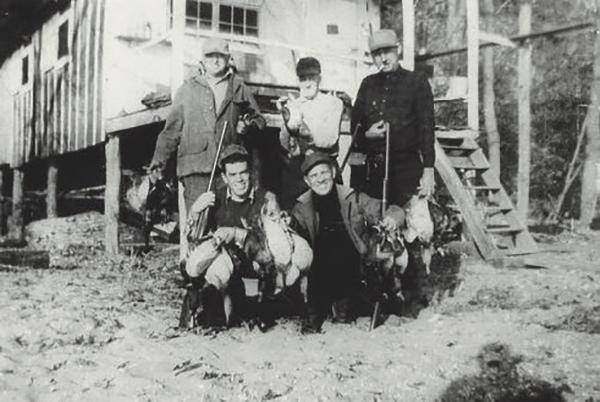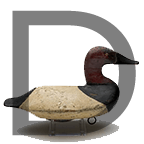Part 2: The Gunning Clubs of Charlestown
Gerard William Wittstadt, Jr., Esquire (c)2026
Chapter 8: Green Bank
Green Bank Fishery and Green Bank Farm were owned by the Barnes family of Carpenter's Point until after the death of George Washington Barnes in 1880. When the Barnes estate was probated, the Barnes brothers continued to operate the fishery and the farm, like Carpenter's Point, for many years after the death of the elder Mr. Barnes. In 1880, James Morgan Heverin, who appraised Green Bank for the Orphan's Court, described the fishery as a "fishing shore including fish houses, shanties and shedding." The farm was described as containing a "farm house and other farm buildings."
It was at Green Bank Farm that Will Heverin was born in August 1860.
The Green Bank Farm and Fishery were located just southeast of Seneca Point. Like Seneca Point and Carpenter's Point, Green Bank was a popular spot with market hunters and "sports" alike. In the 1920s and 1930s, Thomas Roseby McMullen, a hunting guide from Charlestown, used the property as a base camp for his duck-hunting operations.

(Green Bank farmhouse, circa 1930. Thomas R. McMullen is the gentleman standing on the porch at the far right. Photograph, courtesy of J. Edgar McMullen, the grandson of Thomas R. McMullen, Charlestown, Maryland.)

("Tak" Falls, who worked for Remington Arms; Edgar McMullen, Sr.; Russell Fields of Philadelphia and "Ed" at "The Shack" at Green Bank Farm, circa 1935. Photograph courtesy of J. Edgar McMullen, Charlestown, Maryland.)
Later, the farm was acquired by Lew Pennock, who lived in the farmhouse. Mr. Pennock was an avid hunter. Although he regularly gunned the North East River and the Susquehanna Flats, he also maintained a shanty at Wild Duck Cove near Principio, Maryland.

(Pictured, Lew Pennock's gunning club from Green Bank at Wild Duck Cove, circa 1945 left to right top: Lew Pennock; Doc Dougherty; Earl Groves; bottom row: Merrit Pennock and Bob Swanson. Photograph courtesy of Allen W. Purner, Sr., Elkton, Maryland.)
